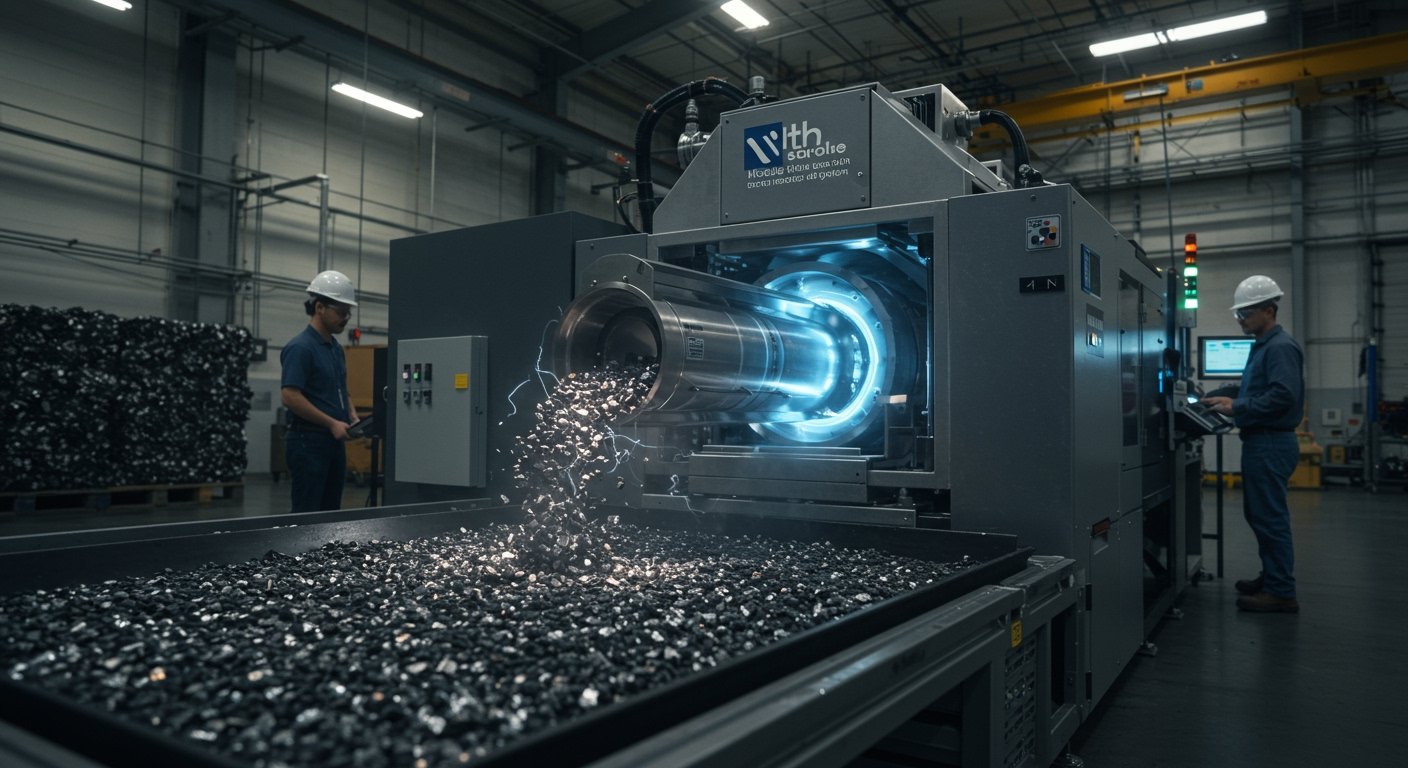Revitalizing Domestic Supply Chains
The United States is making a significant stride towards reducing its reliance on foreign refining of critical metals, minerals essential for modern technologies from electric vehicles to defense systems. Nth Cycle, a company co-founded by MIT Associate Professor Desirée Plata, CEO Megan O’Connor, and Chief Scientist Chad Vecitis, is at the forefront of this effort, deploying a patented technology known as electro-extraction to bring critical metals refining capacity back to American soil.
The current global landscape for critical minerals refining presents a considerable challenge for the U.S. Approximately 85% of the world’s critical minerals are refined in China, a concentration that poses both an economic and a national security issue for the United States. Establishing a secure, domestic supply chain for these vital materials is therefore a strategic imperative.
The Electro-Extraction Solution
Nth Cycle’s core innovation lies in its electro-extraction technology. This system is designed to recover critical metals such as lithium, cobalt, copper, and rare earth elements from a variety of sources, including industrial waste streams and domestically sourced ores. Unlike traditional pyrometallurgical or hydrometallurgical processes, which often require extensive infrastructure and chemical inputs, electro-extraction uses electricity to selectively separate and purify metals.
The technology boasts several key advantages that make it particularly well-suited for addressing the current supply chain vulnerabilities. Its systems are modular, meaning they can be deployed relatively quickly and located closer to material sources, rather than requiring the massive, fixed-location plants characteristic of traditional refining. Nth Cycle highlights that its modular systems can be deployed in a fraction of the time compared to building conventional refining facilities.
Environmental and Operational Benefits
Beyond strategic benefits, the electro-extraction process offers substantial environmental advantages. Because the systems are powered by electricity rather than fossil fuels, they generate significantly lower emissions. According to the company, the technology results in emissions that are 92% lower than traditional mining and refining processes. Furthermore, it demonstrates a 44% lower emissions profile even when compared to more modern recycling methods currently in use.
This reduced environmental footprint aligns with growing global demands for more sustainable production and recycling practices, making Nth Cycle’s technology potentially attractive to manufacturers and governments seeking to green their supply chains.
First Commercial Success: Fairfield, Ohio
A tangible step in Nth Cycle’s plan to onshore refining is already operational. The company’s first commercial system is located in Fairfield, Ohio. This facility is actively demonstrating the technology’s capabilities by producing cobalt and nickel recovered specifically from battery scrap. The successful operation in Fairfield serves as a proof point for the technology’s viability and its potential to turn waste materials into valuable resources.
Recovering metals from end-of-life products, particularly batteries, is a crucial component of building a circular economy for critical minerals, reducing the need for virgin mining and processing.
Charting a Path Forward
Looking ahead, Nth Cycle has ambitious plans to scale its operations and build out these new domestic supply chains. The company intends to deploy its modular electro-extraction systems across the U.S. and Europe. This expansion strategy involves partnering with various stakeholders in the materials ecosystem, including scrap yards that handle end-of-life products and industrial waste, manufacturers who require refined metals, and potentially mining operations seeking more environmentally sound processing methods.
By strategically placing these modular units near sources of material or points of demand, Nth Cycle aims to create a more distributed and resilient network for critical metals refining. This network could significantly enhance the availability of domestically refined metals, supporting U.S. industries and reducing dependence on the concentrated refining capacity currently located overseas.
Strategic Importance
The initiative by Nth Cycle and its founders—Dr. Plata, Ms. O’Connor, and Dr. Vecitis—underscores the critical importance of technological innovation in addressing complex geopolitical and economic challenges. By developing and deploying a novel method for refining critical metals, they are not only creating commercial opportunities but also contributing directly to strengthening U.S. economic competitiveness and national security in the burgeoning global race for these essential materials. The success of ventures like Nth Cycle will be pivotal in shaping the future of critical mineral supply chains both domestically and internationally.



















